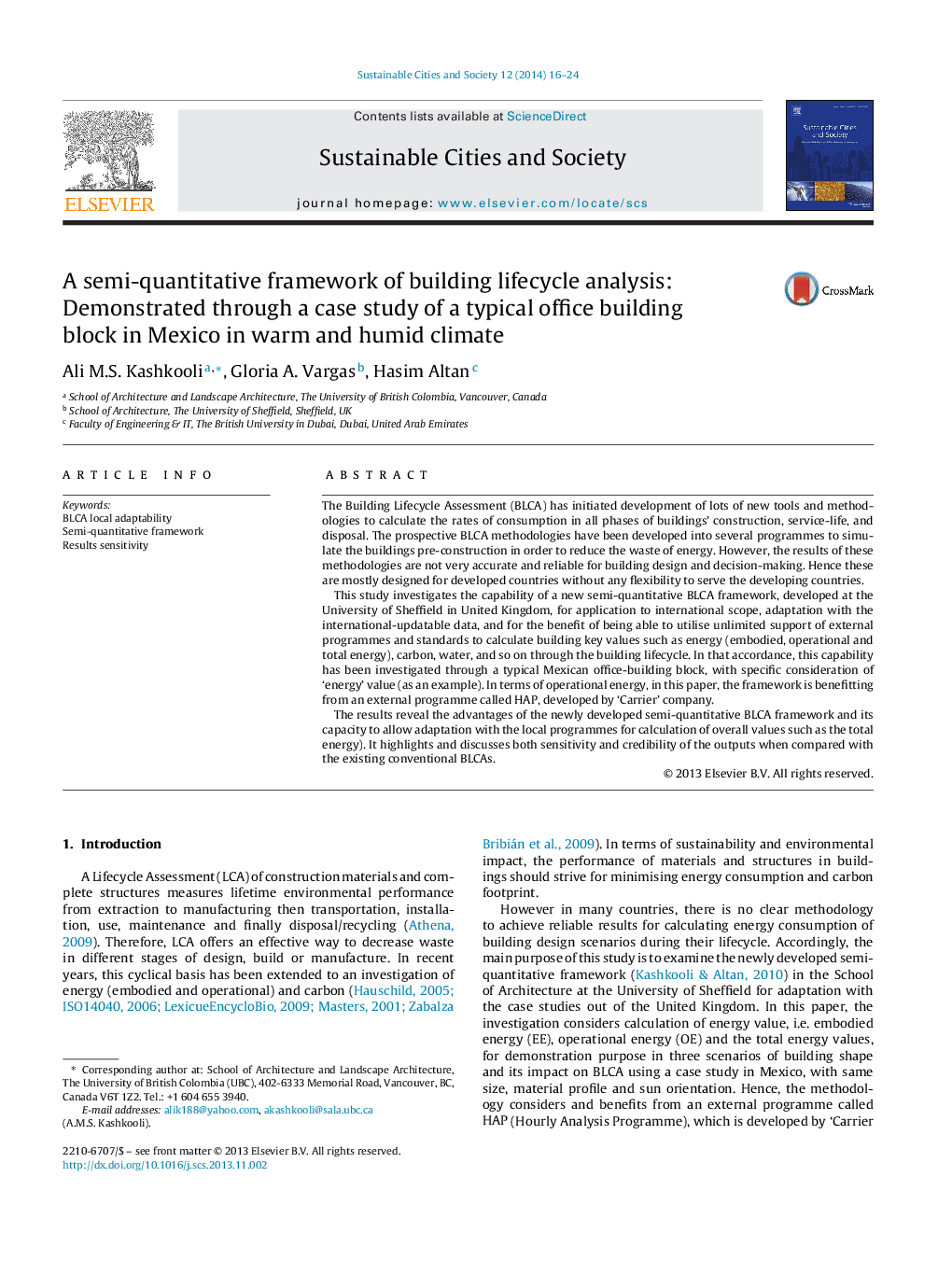| Article ID | Journal | Published Year | Pages | File Type |
|---|---|---|---|---|
| 308108 | Sustainable Cities and Society | 2014 | 9 Pages |
•Capability of a new BLCA framework in application to international scope.•Intention in semi-quantitative BLCA.•Intention in simplicity and pureness of BLCA outcomes.•Intention in multidisciplinary and micro-detailed BLCA modelling.
The Building Lifecycle Assessment (BLCA) has initiated development of lots of new tools and methodologies to calculate the rates of consumption in all phases of buildings’ construction, service-life, and disposal. The prospective BLCA methodologies have been developed into several programmes to simulate the buildings pre-construction in order to reduce the waste of energy. However, the results of these methodologies are not very accurate and reliable for building design and decision-making. Hence these are mostly designed for developed countries without any flexibility to serve the developing countries.This study investigates the capability of a new semi-quantitative BLCA framework, developed at the University of Sheffield in United Kingdom, for application to international scope, adaptation with the international-updatable data, and for the benefit of being able to utilise unlimited support of external programmes and standards to calculate building key values such as energy (embodied, operational and total energy), carbon, water, and so on through the building lifecycle. In that accordance, this capability has been investigated through a typical Mexican office-building block, with specific consideration of ‘energy’ value (as an example). In terms of operational energy, in this paper, the framework is benefitting from an external programme called HAP, developed by ‘Carrier’ company.The results reveal the advantages of the newly developed semi-quantitative BLCA framework and its capacity to allow adaptation with the local programmes for calculation of overall values such as the total energy). It highlights and discusses both sensitivity and credibility of the outputs when compared with the existing conventional BLCAs.
